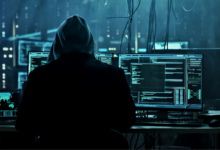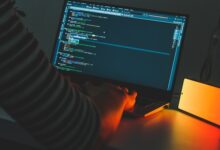How to Stay Safe on Social Media

TechTrendsKE proves itself to be a professional and well-designed website meant to give you everything you need to know about technology in Kenya. I feel confident in the information I receive given the quality of recent posts such as this one on ISIS’ frightening new app.
Social media has undoubtedly made the world a more connected place where people can remain in touch halfway across the world. While the designs and applications may differ from platform to platform, the mission remains the same: the spread of information and human interactivity. It is quite possible that you ran across this article because it was sent to you by a friend or connection.
Unfortunately, social media isn’t a completely safe medium because it is still subject to the same concerns and dangers as the rest of the internet. You can never be 100 percent certain of who you are talking to on the other end of the messaging app. If you aren’t an expert or don’t have specialized tools, you can’t know what clicking on a link will do until it could be too late. People make mistakes, and those mistakes can have negative impacts on you. You need to be able to protect yourself when using social media.
Here are a few of the main ways to keep yourself safe on social media:
Beware of Links
Just because you see a link doesn’t mean you should click on it. A link with a message saying something along the lines of “this is really cool” could easily lead to a website that will install malware or ransomware onto your computer. Shared posts or other material that have titles meant to bait you or promise you the world (remember there is no such thing as “free” on the internet) are probably dangerous in nature and should be avoided.
If you see a link that’s from a website you know or you get a preview of what you are going to read, you will probably be fine following the link. The same goes for trending topics or items that have been shared thousands of times. It might be pointless clickbait, but it probably won’t infect your computer. Otherwise, you should be cautious and perhaps ask a question or two about what you are being shown. It could save your computer.
Use a Virtual Private Network
You need to take great care when using your account, but you also need to take steps to protect your account itself. The one danger most people don’t know about is the potential for data interception on unprotected public networks. Hackers will make a day of sitting around in a café with their laptop open to some basic tools that allow them to intercept anything anyone sends over the network, which can include your social media account information among other things.
Your best defense is to use a Virtual Private Network (VPN) to protect yourself when you are out in public or travelling. It is a service that will connect you to an offsite secure server via an encrypted connection, allowing you to stay anonymous online and safely use any network you wish. People around the world use them to maintain communications under oppressive governments, do things such as watch Netflix outside America and take advantage of regional offers.
Know that Scams Are Common
If you are anywhere online, you are going to find people trying to scam you in one way or another. Scams are the bread and butter of online crime, and you find them still running because they work.
Take note of the following so you don’t find yourself a victim:
• It cannot be stressed enough that nothing is free on the internet. If you see an offer online, ask yourself what might be in it for them.
• Sharing a post will not result in much other than the fact that you shared a post. Giveaways and other promises are either not worth the effort or outright lies.
• People create fake accounts of celebrities and companies all the time. Look for some sort of verification from the platform itself that the account is official.
• Wait for other people to do something first and report back if you’re uncertain. You can also perform searches describing some of the key parts of a post or message and see what you find.
Don’t Give Away Too Much Information
You can share whatever information you’d like online, but that doesn’t mean it is the wisest course of action to take. If you put your phone number online for the world to see on a public account, you will eventually see some unwanted phone calls. The same goes for your email, so be careful about making accounts public unless you have a very good reason (certain careers would benefit). Personal details can be used against you, and all it takes is one criminal with ambition.
There even have been cases where thieves monitor social media to find people who are out of their homes, timing break-ins with vacations and day trips. A small leak of information online can have real world consequences, and it’s difficult to recover from such damage. It is even possible to endanger others in your life from what you post, so be careful.
 Social media is constantly changing, and in the coming years, we can expect that the landscape will be different in terms of your security. This is why you constantly need to stay on top of the situation while remaining aware of the above threats. Yet some things like those described above will never change. Above all else, remember that vigilance and common sense are your best tools for protecting yourself no matter what you are doing on the internet.
Social media is constantly changing, and in the coming years, we can expect that the landscape will be different in terms of your security. This is why you constantly need to stay on top of the situation while remaining aware of the above threats. Yet some things like those described above will never change. Above all else, remember that vigilance and common sense are your best tools for protecting yourself no matter what you are doing on the internet.
Do you have any experiences with social media that put you or your computer in danger? Do you think there are other things that people really need to watch out for when enjoying themselves online? If so, please leave a comment below so people can hear your thoughts and create a conversation.
About the Author: Cassie Phillips is an internet security and data privacy blogger. She enjoys giving people the advice they need to stay safe online.




